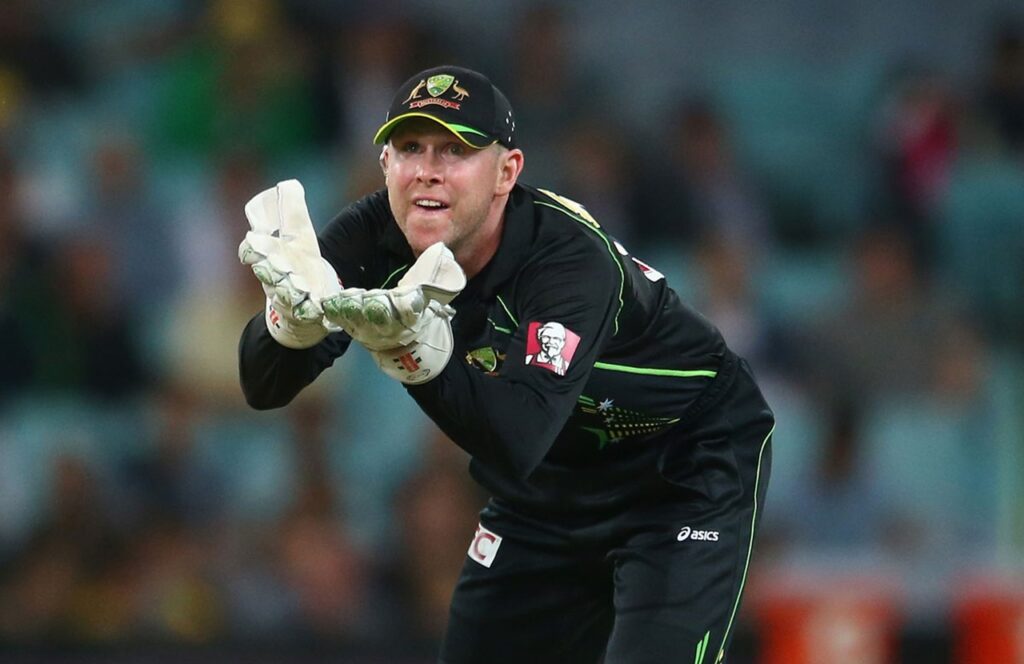

In 2022, people are time poor. Teams are expected and required to form and perform quickly, if not instantaneously. Because no individual can know everything, teams – whether within organisations or society more generally – must harness the power of the collective if they are to succeed. This means drawing on the diverse perspectives, background and technical skills of all team members, who likely do not know each other but must come together and deliver. How does this happen? It is easy to fall into the trap of allowing teams time to form and ‘bond’, but there is a real risk that this allows poor habits to develop. There is a tendency then to fall back on tokenistic tag lines, instead of understanding and concentrating on the conditions that are required for high performance. Is an early focus on setting these conditions the answer?
I have always been told that sport and business are heavily aligned and that the soft skills involved to be successful are highly transferable. As I have started to move into the business space, I am increasingly aware that there is much each can learn from the other. Let me provide some context.
The longer I spent in cricket, the busier the calendar became and therefore time spent with a particular team has diminished. Growing up, my heroes seemed to play a home series in the summer and an away series in the winter. Some one day games were played before or after the tests, but the schedule was easy to follow and it seemed like each game had relevance. The team had culture and values that seemed to be aligned at the time with the Australian population and the players were adored. Fast forward 15 years to the present and the whole landscape has changed. There are new formats: T20 cricket has exploded here and overseas. Players now can jump between national duty, domestic cricket, county cricket and franchise cricket in multiple competitions around the world, all in the space of 12 months. I played for 16 professional teams across eight different countries, all with their own unique way of doing things. Similarly, the business landscape has changed. Less often do we see career employees who stay at the same company or organisation and work their way through the hierarchy to management. Instead, employees are frequently on the search for the next opportunity or the next challenge.

Within the teams I have represented, some had the benefit of time: a five month preseason to train and plan, and to get to know each other, our families, our ambitions and our weaknesses. This helped us to understand one another, and to invest in each other’s success as well as the team’s. This was all done before taking the field for our first competitive match. I’ve also been a part of teams where the players got together 48 hours before our first match, exchanged a few messages on a WhatsApp group, trained once together and then started the matches. In business, almost no team has five months together before performance is expected. In that context, the pertinent question is, how do you team in a traditional method (that is, aligning the team’s values and expectations with an individual’s) when your players (or team members in business) haven’t got time to spend 6 months together before performance is expected or required of them?
Business looks to sport as an industry where teaming is done well, which in my experience, isn’t always incorrect. Often teams are praised for “having a great culture” or because “they are building something special”. My observation is these comments are almost always directed at the teams who are experiencing success. But what comes first, the success or the culture? The best description of a culture I’ve read was using a garden as metaphor. A team, no different a garden, should be made of different individuals or plants. For them to grow and be at their best, they all need different conditions. Some need constant watering and attention, some need sunlight or space while others need shade from the elements. How do you grow all these plants (humans) to get your culture or garden to be at its best? You treat them individually, getting to know what is required for them to be at their best and providing it. Each of them is playing their role in the look and feel of the overall garden. It isn’t a one size fits all approach.
This takes time, and as mentioned before, we don’t always have it. In these circumstances, how do we align our team and its members to come together quickly to perform before we are fully grown plants that can look after ourselves?
One approach is to lean on the ‘traditional’ values of sporting teams across the country - concepts like ownership, respect, hard work, family and perhaps my favourite, elite honesty. The problem is that they are stereotypes, and more often than not, are put together with some butcher’s paper and marker pens during a team bonding session. Values are deeply personal concepts that differ for everyone, and it takes time and trust for people to share their genuine thoughts and views about them. Printing them out and slapping them on a door or website is a crutch that is reverted to in the absence of time and trust and should be avoided when trying to build a genuine high performing unit.
So how do we ensure a high-performing team when we no longer have months for team members to get to know each other before getting down to the task at hand?

I believe you can align a team through goals and vision, and then cultivate the culture while the work is underway. The first seemingly obvious step is to assemble the right people (as few as possible), with the diverse skills necessary to achieve the required outcome and an understanding of who is part of the team, and who is responsible for what. Then, much like a cricket team that assembles 48 hours before the first game, it is crucial that the team shares and aligns on a view of what success looks like, and sees it as an important, meaningful and achievable. This is unity of purpose.
Then, provided that there is a supportive context, where team members feel safe culture and values can develop. A supportive context might include the availability of expert coaching or educational tools, and appropriate reward processes that are aligned to the purpose. Returning to the garden analogy, it is much like the care and attention that is required to ensure that each plant has the environment and conditions it needs to thrive, and that weeds (bad habits) are not permitted to take over.
Whether it is sport, business or in the garden, we know that success isn’t guaranteed. Failure is a part of high performance and even with the best intentions, we do fail - we don’t meet our own expectations or those of others just like not all plants grow at the same rate. But what we can do is stack the deck in our favour by ensuring teams are bonded by the conditions above, rather then hastily put together values. Our values are something that we should be proud of and teams within sport and business need not only to respect that we are different individuals but also embrace it to fully unlock the potential of high performance.
*55M leverages and recognises the research of Richard Hackman and Ruth Wageman from Harvard University on the conditions for high performing teams for all our team engagements.

Your privacy is critically important to us. 55M is located at 55m.com.au.
It is 55M's policy to respect your privacy regarding any information we may collect while operating our website. This Privacy Policy applies to 55m.com.au (hereinafter, "us", "we", or "55m.com.au"). We respect your privacy and are committed to protecting personally identifiable information you may provide us through the Website. We have adopted this privacy policy ("Privacy Policy") to explain what information may be collected on our Website, how we use this information, and under what circumstances we may disclose the information to third parties. This Privacy Policy applies only to information we collect through the Website and does not apply to our collection of information from other sources.
This Privacy Policy, together with the Terms and conditions posted on our Website, set forth the general rules and policies governing your use of our Website. Depending on your activities when visiting our Website, you may be required to agree to additional terms and conditions.
Website Visitors
Like most website operators, 55M collects non-personally-identifying information of the sort that web browsers and servers typically make available, such as the browser type, language preference, referring site, and the date and time of each visitor request. 55M's purpose in collecting non-personally identifying information is to better understand how 55M's visitors use its website. From time to time, 55M may release non-personally-identifying information in the aggregate, e.g., by publishing a report on trends in the usage of its website.
55M also collects potentially personally-identifying information like Internet Protocol (IP) addresses for logged in users and for users leaving comments on 55m.com.au blog posts. 55M only discloses logged in user and commenter IP addresses under the same circumstances that it uses and discloses personally-identifying information as described below.
Gathering of Personally-Identifying Information
Certain visitors to 55M's websites choose to interact with 55M in ways that require 55M to gather personally-identifying information. The amount and type of information that 55M gathers depends on the nature of the interaction. For example, we ask visitors who sign up for an account at 55m.com.au to provide a username and email address.
Security
The security of your Personal Information is important to us, but remember that no method of transmission over the Internet, or method of electronic storage is 100% secure. While we strive to use commercially acceptable means to protect your Personal Information, we cannot guarantee its absolute security.
Links To External Sites
Our Service may contain links to external sites that are not operated by us. If you click on a third party link, you will be directed to that third party's site. We strongly advise you to review the Privacy Policy and terms and conditions of every site you visit.
We have no control over, and assume no responsibility for the content, privacy policies or practices of any third party sites, products or services.
Aggregated Statistics
55M may collect statistics about the behaviour of visitors to its website. 55M may display this information publicly or provide it to others. However, 55M does not disclose your personally-identifying information.
Cookies
To enrich and perfect your online experience, 55M uses "Cookies", similar technologies and services provided by others to display personalised content, appropriate advertising and store your preferences on your computer.
A cookie is a string of information that a website stores on a visitor's computer, and that the visitor's browser provides to the website each time the visitor returns. 55M uses cookies to help 55M identify and track visitors, their usage of 55M, and their website access preferences. 55M visitors who do not wish to have cookies placed on their computers should set their browsers to refuse cookies before using 55M's websites, with the drawback that certain features of 55M's websites may not function properly without the aid of cookies. By continuing to navigate our website without changing your cookie settings, you hereby acknowledge and agree to 55M's use of cookies.
Privacy Policy Changes
Although most changes are likely to be minor, 55M may change its Privacy Policy from time to time, and in 55M's sole discretion. 55M encourages visitors to frequently check this page for any changes to its Privacy Policy. Your continued use of this site after any change in this Privacy Policy will constitute your acceptance of such change.